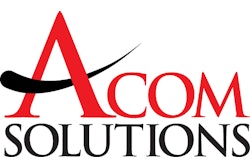New solutions allow companies to add information to tags as products move through supply chain
Columbia, MD — March 17, 2004 — Matrics, a provider of electronic product code (EPC)-compliant radio frequency identification (RFID) systems, has added read/write functionality to its tag product line, allowing businesses to add information to the RFID tag as products and shipments move through the supply and logistics process.
According to Matrics, the introduction of read/write functionality addresses customer demand in response to highly publicized initiatives from such private sector companies as Wal-Mart and Target and government sector organizations such as the Department of Defense (DoD). Wal-Mart's RFID specification provided to the supplier community classifies Matrics' read/write tags as Class 0+.
The solution provider said that the read/write tag will complement its existing RFID offerings, and the company will continue to market its read-only tags. Matrics will be supplying the read/write tags in limited quantities now, with plans to ramp up production in the second quarter of this year.
Matrics said it will be delivering EPC-compliant RFID systems to vertical markets that include retail, aviation security, pharmaceutical, consumer packaged goods, military/government and industrial.
"Building beyond bar code technology, EPC-compliant RFID tags enable real-time identification of assets without human intervention," said Joe White, vice president of product management at Matrics. White noted that the provider's family of RFID tags include read only (R/O), write-once/read-many (WORM) and write-many/read-many (WMRM) offerings.
The specification for the read only (factory programmed) tags is 96-bit ID and 16-bit CRC; for the WORM and WMRM (user programmed) tags, 128-bit ID, 128-bit user data and 32-bit control page for lock and kill feature. All the tags operate at ultra high frequency (UHF).










